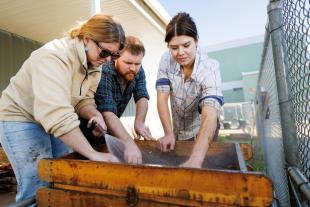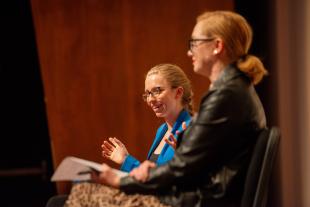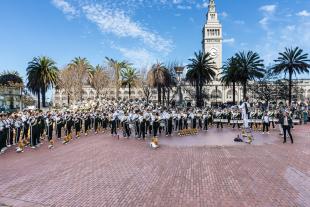Who Were the African Californios? Researchers Uncover California's Untold Black History
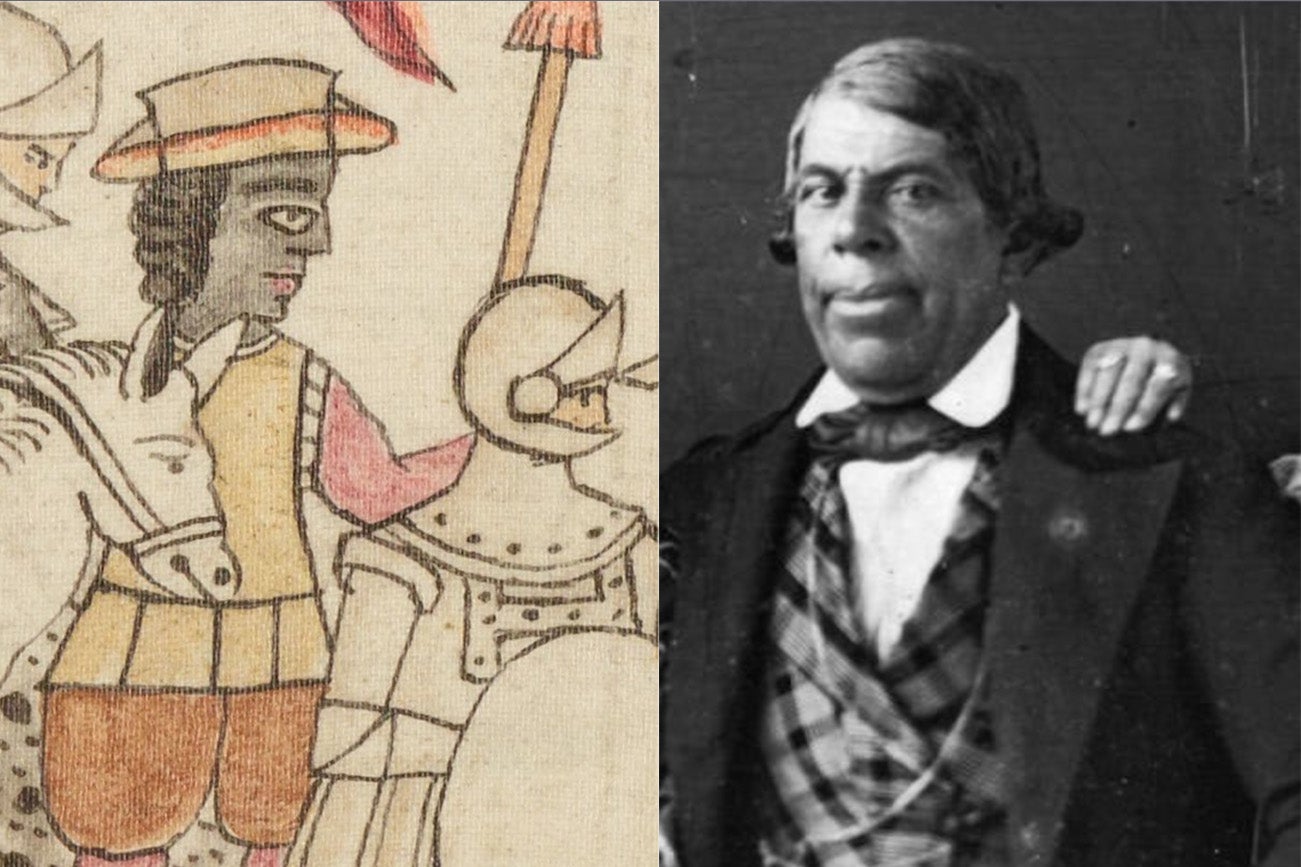
When most people think of early California history, they might remember Spanish conquistadors, Indigenous tribes, missions or white American prospectors — but probably nothing about Black people. An interdisciplinary group of Cal Poly researchers is working to change that perception by unearthing the largely untold history of settlers of African descent in early California.
“In a lot of cases, people of African descent have been erased from the historical narrative,” says history professor Cameron Jones, coauthor of the book At the Heart of the Borderlands: Africans and Afro-Descendants on the Edges of Colonial Spanish America. Jones is leading the project with the help of computer science professor Foaad Khosmood. “It's deep within our history, but no one talks about it. We're trying to reverse that erasure in talking about the American West and California specifically, by helping people understand the importance of these groups.”
In their day-to-day work on the project, Jones and a group of student researchers analyze records from a database called the Early California Population Project, a digitized set of birth, death and baptism records from the first decades of Spanish colonial history in California.
By developing digital tools to analyze early Spanish colonial records, Jones and his colleagues are building resources that will help shine a light on the history of people of African descent among the Californios — a multicultural group of people who populated the region between Spanish colonization and the annexation by the United States.
For example, in the colonial settlement of San Luis Obispo, says Jones, five of the six Spanish soldiers garrisoned there were of African descent. About half of the residents of the early village of Los Angles were Black. The Pico family, whose members included prominent Californio landowners, colonial governors, state senators, and the former owner of the property that became Hearst Castle, had African heritage as well.
A major challenge of the project is that race wasn't explicitly stated in many Spanish colonial records in California. People of African descent were treated as second-class citizens or worse in many other Spanish colonies — but in remote Alta California, where the Spanish government needed colonists to build their empire, race was kept ambiguous by using euphemisms such as "gente de razón,” or rational people.
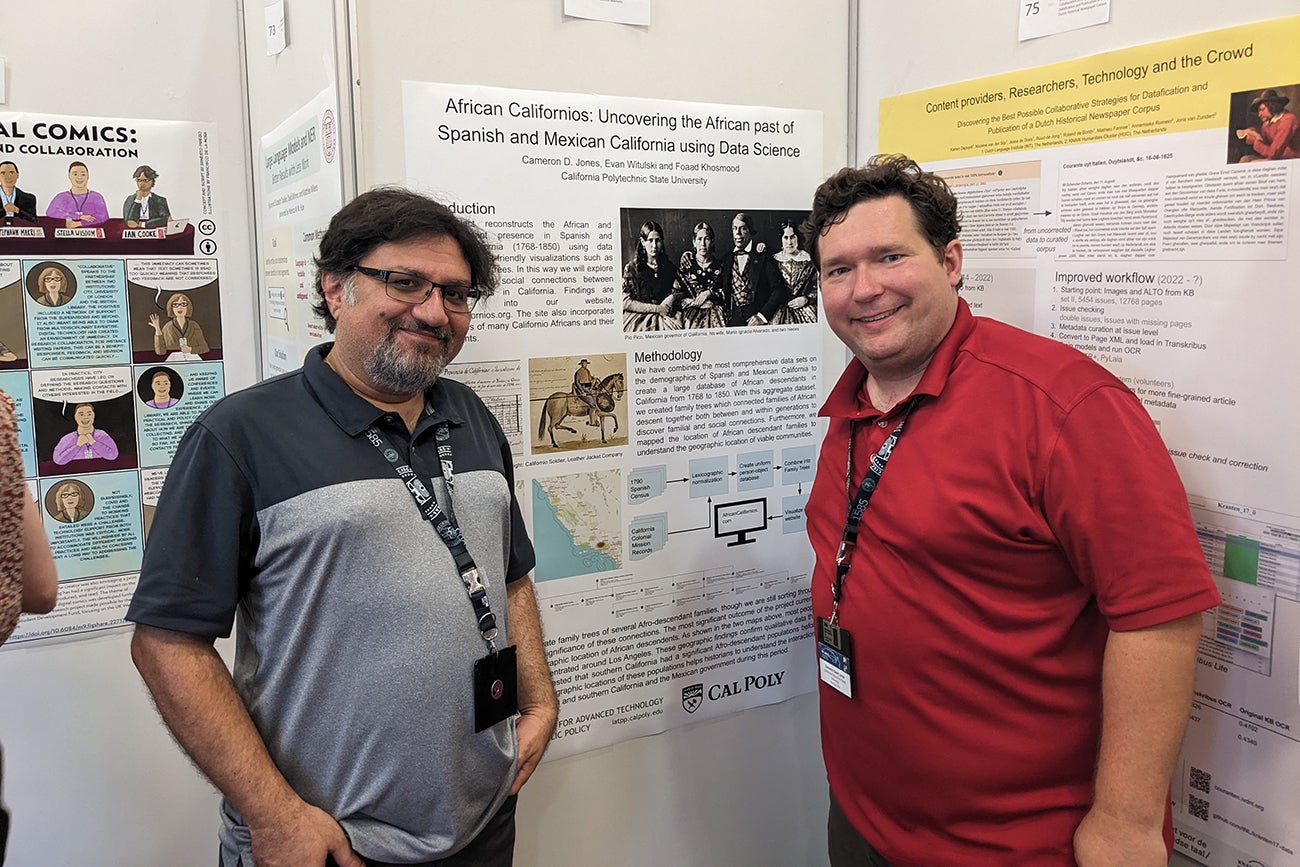
“The Spanish were more likely to employ people from West Africa and other parts of the continent, to become conquistadors and help explore the New World — and in return those people might be rewarded with land and property and the chance to just live their lives. It’s a very different experience than what many people are used to hearing,” says Jack Martin, a history graduate student who was drawn to this project after taking a course from Jones focused on Afro-Latin American history. “The story that most people associate with the history of Black people in the Americas is connected with the trans-Atlantic slave trade, but that was not always the case.”
The quality of 18th-century colonial record-keeping presents another of the major challenges in the project — one that computer scientists are working to help address.
“We’re working with Spanish colonial records from the 1780s and ‘90s — mostly church parish records where names may have been spelled differently, or entries were recorded decades after the fact,” says Khosmood, who began working with Jones on the project after the two got to know each other through the Faculty Association. “The big challenge is to decide if two people with similar names might actually be the same person, or if two people with overlapping records might be related.”
Khosmood and his students are working to develop programs that can replicate the kinds of decisions and inferences a trained historian might make about incomplete records, and then use machine learning techniques to automate those processes to help fill the gaps in thousands of data points in the historical record.
“Working on this project has shifted what I want to do,” says Evan Witulski, a recent computer science graduate who helped develop those digital tools. “I really love sitting down with an interesting problem and building out a program to fix it. This project helps me get better at approaching tasks and problem solving.”
The project highlights one of Cal Poly’s biggest strengths: a polytechnic community where scholars of different disciplines can come together.
“We are uniquely situated in a place where we can bring liberal arts and computing together to do very interesting projects, and this has many benefits,” says Khosmood. “I'm personally interested in all these things that I'm not an expert on — history, philosophy, narratives. Being able to brainstorm with some of the brilliant faculty in the College of Liberal Arts is very exciting, and I just hope that we can do more of this.”
The next steps for the project will be to develop a publicly available online resource at AfricanCalifornios.org, where historians, researchers, or anyone interested in their family’s history can access records pertaining to Black Californios. The team is also planning to begin gathering stories to flesh out the data, and to work with teachers to develop interactive maps, guides and lesson plans that update the state’s ubiquitous fourth-grade California history courses.
“Part of social justice is to be able to correct the inaccuracies within historical narratives that erase African American communities here in the United States,” says Jones. “We're really hoping that this reshapes the way California history is taught.”

